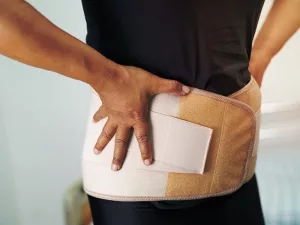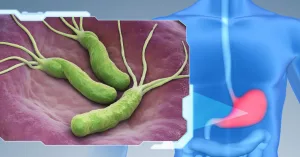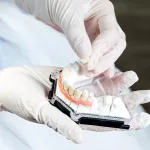Hey there, friend. If you’ve ever felt that “zombie‑like” exhaustion that no amount of coffee seems to shake off, you’re not alone. A lot of people with Irritable Bowel Syndrome (IBS) describe that same deep, lingering tiredness—something that goes beyond the ordinary “I’m a bit sleepy” feeling. In this post we’ll dive into why IBS can turn your energy levels into a roller‑coaster, who’s most likely to feel the drag, and—most importantly—what practical steps you can take right now to feel more like yourself again.
How Common Is Fatigue
First things first: fatigue isn’t a rare side‑effect of IBS; it’s actually one of the most frequent companions. In a systematic review that pooled data from 15 studies, researchers found that about 61 % of people with IBS reported some level of fatiguesystematic review. That makes it the third most common symptom after abdominal pain and altered bowel habits.
But it’s not just about how many people feel tired—it’s also about how badly it can hit. The same review showed that moderate‑to‑severe fatigue was closely linked to higher scores on the IBS Symptom Severity Scale (IBS‑SSS). In other words, the worse your gut symptoms, the more likely you’re to feel wiped out.
| IBS Subtype | Fatigue Prevalence | Typical Severity |
|---|---|---|
| IBS‑D (diarrhoea) | ≈58 % | Moderate‑to‑Severe |
| IBS‑C (constipation) | ≈62 % | Moderate |
| IBS‑M (mixed) | ≈64 % | Severe |
So, whether you’re dealing with frequent trips to the bathroom, stubborn constipation, or a mix of both, the odds are that fatigue has already crept into your day.
Why IBS Drains Energy
Understanding the why can empower you to take targeted action. There are four big culprits behind the IBS‑fatigue connection.
Gut‑Brain Axis & Stress Hormones
Think of your gut and brain as two chatty neighbours who constantly pass notes. In people with IBS, this “note‑passing” (the gut‑brain axis) often goes haywire, leading to an over‑active stress response. Elevated cortisol and adrenaline keep your nervous system on high alert, which is exhausting in the long run. A study on stress hormones in IBS patients confirmed that dysregulated cortisol patterns correlate with higher fatigue scores stress‑hormone research.
Chronic Pain & Energy Drain
Living with recurring abdominal pain is like having a low‑grade fire burning inside you. Your body diverts energy to manage the pain, leaving less for daily tasks. This constant “energy budgeting” can feel like running a marathon with a backpack full of rocks.
Sleep Disruption
Nighttime isn’t always peaceful for IBS sufferers. Nocturnal bowel urgency, cramping, or the simple anxiety of “what if it flares up at 2 a.m.?” can fragment sleep. Research shows IBS patients have more awakenings and lighter sleep stages, which amplifies daytime fatigue sleep study. Women, in particular, report insomnia and fatigue more often than men.
Nutritional Deficiencies
Many of us practice a low‑FODMAP or elimination diet to tame gut symptoms. While helpful, these diets can unintentionally cut out iron‑rich foods, B‑12 sources, or vitamin D—nutrients that keep our cells buzzing with energy. A review of diet‑related fatigue in IBS highlighted that under‑eating or restrictive eating patterns frequently lead to low ferritin, low B‑12, and low vitamin D levels nutrition review.
Most At Risk
Not everyone with IBS will feel chronic fatigue, but certain factors raise the odds.
- Severe IBS symptoms: Higher IBS‑SSS scores go hand‑in‑hand with higher fatigue scores.
- Psychological stressors: Anxiety sensitivity, depression, and perceived stress explained about 42 % of fatigue variance in a 2013 NIH‑funded trial of cognitive‑behaviour therapy for IBS NIH trial.
- Gender: Women with IBS report insomnia and fatigue more frequently than men.
- Co‑morbid conditions: Iron‑deficiency anemia, thyroid dysfunction, or small‑intestinal bacterial overgrowth (SIBO) can magnify tiredness.
- Lifestyle triggers: Poor sleep hygiene, sedentary habits, and “energy‑zapping” mental habits (excess scrolling, constant symptom‑googling) all add fuel to the fatigue fire.
Assess Your Risk
Before you dive into treatment, it helps to know where you stand. Try the quick self‑rating below (0 = not at all, 10 = worst ever).
- Fatigue level today: __ /10
- Quality of sleep last night: __ /10 (10 = best)
- Stress level this week: __ /10
- Frequency of IBS symptoms (pain, urgency, bloating): __ /10
If you’re consistently scoring high on fatigue and stress while also rating sleep low, it’s a good signal to bring this up with your healthcare provider. Red‑flag signs that merit a prompt doctor visit include:
- Persistent anemia symptoms (pale skin, shortness of breath)
- Unexplained weight loss
- Thyroid‑related signs (cold intolerance, hair loss)
- Severe mood changes or suicidal thoughts
Managing the Fatigue
Now for the good part—actions you can take today to reclaim your energy. Think of these as a toolbox; pick the tools that fit your life.
Gut Health Optimisation
Probiotics and a personalised low‑FODMAP plan can reduce gut inflammation and, in turn, lower fatigue. A recent randomized trial found that targeted probiotic use decreased fatigue scores by about 30 % in IBS patients probiotic study. If you’re not already working with a dietitian, consider a one‑off consultation to fine‑tune your diet without sacrificing essential nutrients.
Stress‑Reduction Techniques
Because stress is a two‑way street with gut symptoms, tackling it directly pays dividends. Cognitive‑behaviour therapy (CBT) has solid evidence for reducing both IBS severity and fatigue. Even simple daily habits—mindful breathing for five minutes, progressive muscle relaxation before bed, or a short guided meditation—can lower cortisol levels enough to feel a noticeable energy lift.
Sleep Hygiene
- Set a consistent bedtime and wake‑time, even on weekends.
- Keep the bedroom cool, dark, and quiet; consider blackout curtains or a white‑noise app.
- Limit caffeine after 2 p.m. and avoid heavy meals within two hours of sleep.
- If nocturnal urgency wakes you, keep a bedside “potty kit” (toilet paper, wipes, soothing cream) so you can address the need quickly and get back to sleep.
Nutrient Replenishment
Ask your doctor for a basic blood panel—complete blood count, ferritin, vitamin B‑12, vitamin D, and thyroid function. If you’re low on iron, opt for a gentle bisglycinate formula rather than ferrous sulphate, which can aggravate IBS symptoms. For vitamin D, 1,000–2,000 IU daily is often enough, but let your doctor tailor the dose.
Physical Activity
It might feel counter‑intuitive to move when you’re exhausted, but gentle aerobic activity actually boosts mitochondrial efficiency and improves gut motility. Aim for 20‑30 minutes of low‑impact exercise—walking, cycling, or yoga—most days of the week. Even short “movement breaks” (standing, stretching) during long periods of sitting can prevent the energy slump.
Fatigue‑Management Toolkit
Here’s a quick‑reference checklist you can print or save on your phone:
- ✔️ Schedule a blood test for iron, B‑12, D, and thyroid.
- ✔️ Try a 4‑week low‑FODMAP trial with a dietitian.
- ✔️ Add a 10‑minute mindfulness session each morning.
- ✔️ Go to bed at the same time, no screens after 9 p.m.
- ✔️ Walk 15 minutes after lunch—helps digestion and energy.
- ✔️ Keep a “fatigue journal” to track triggers.
Real Stories
Numbers are helpful, but stories bring them to life. Below are two short anecdotes (anonymised) that illustrate how people turned the tide on IBS‑related fatigue.
Emily’s 3‑Month Flare
Emily, a 34‑year‑old graphic designer, described her fatigue as “waking up feeling like I’d run a marathon in my sleep.” Her IBS‑D episodes were daily, and she’d been skipping meals to avoid pain. After a blood test revealed low ferritin, she started a gentle iron bisglycinate supplement and worked with a dietitian to re‑introduce low‑FODMAP carbs gradually. Coupled with weekly CBT sessions, her fatigue score dropped from an 8/10 to a 4/10 within two months.
Mark’s Mind‑Body Turnaround
Mark, 47, suffered from IBS‑C and chronic fatigue that made his office job feel impossible. He began a daily 10‑minute breath‑focus routine and swapped his late‑night Netflix binge for a short walk with his dog. Within six weeks, his sleep quality improved, and his IBS‑SSS fell by 25 %. He now rates his fatigue at a manageable 3/10 and credits the combined mind‑body approach for the change.
If you’ve faced similar struggles, know you’re not alone—and you have agency to shift the narrative.
Bottom Line Takeaways
Let’s distill everything into a handful of actionable points:
- Recognise fatigue as a core IBS symptom. It’s common, measurable, and treatable.
- Identify personal risk factors. Severity of gut symptoms, stress levels, gender, and co‑morbidities matter.
- Get a full blood panel. Iron, B‑12, vitamin D, and thyroid tests can uncover hidden contributors.
- Address gut health. Targeted probiotics, low‑FODMAP guidance, and gut‑focused therapies reduce the “energy drain.”
- Prioritise stress and sleep. CBT, mindfulness, and solid bedtime routines boost both gut and overall energy.
- Move, but move wisely. Gentle, consistent activity improves mitochondrial function without worsening IBS symptoms.
Remember, fatigue isn’t a life sentence. With the right mix of medical checks, lifestyle tweaks, and a dash of self‑compassion, you can reclaim the vitality that IBS tried to steal.
Conclusion
Living with IBS can feel like walking a tightrope—one misstep and fatigue knocks you off balance. But by understanding why your gut may be sapping your energy, spotting the signs that put you at higher risk, and applying a toolbox of evidence‑based strategies, you can tip the scales back in your favour. I hope you feel a little less alone after reading this, and more equipped to take the next step. What’s one small change you’re willing to try this week? Drop a comment, share your story, or simply give yourself a pat on the back for showing up. You deserve a life full of energy and comfort—let’s get there together.

























Leave a Reply
You must be logged in to post a comment.